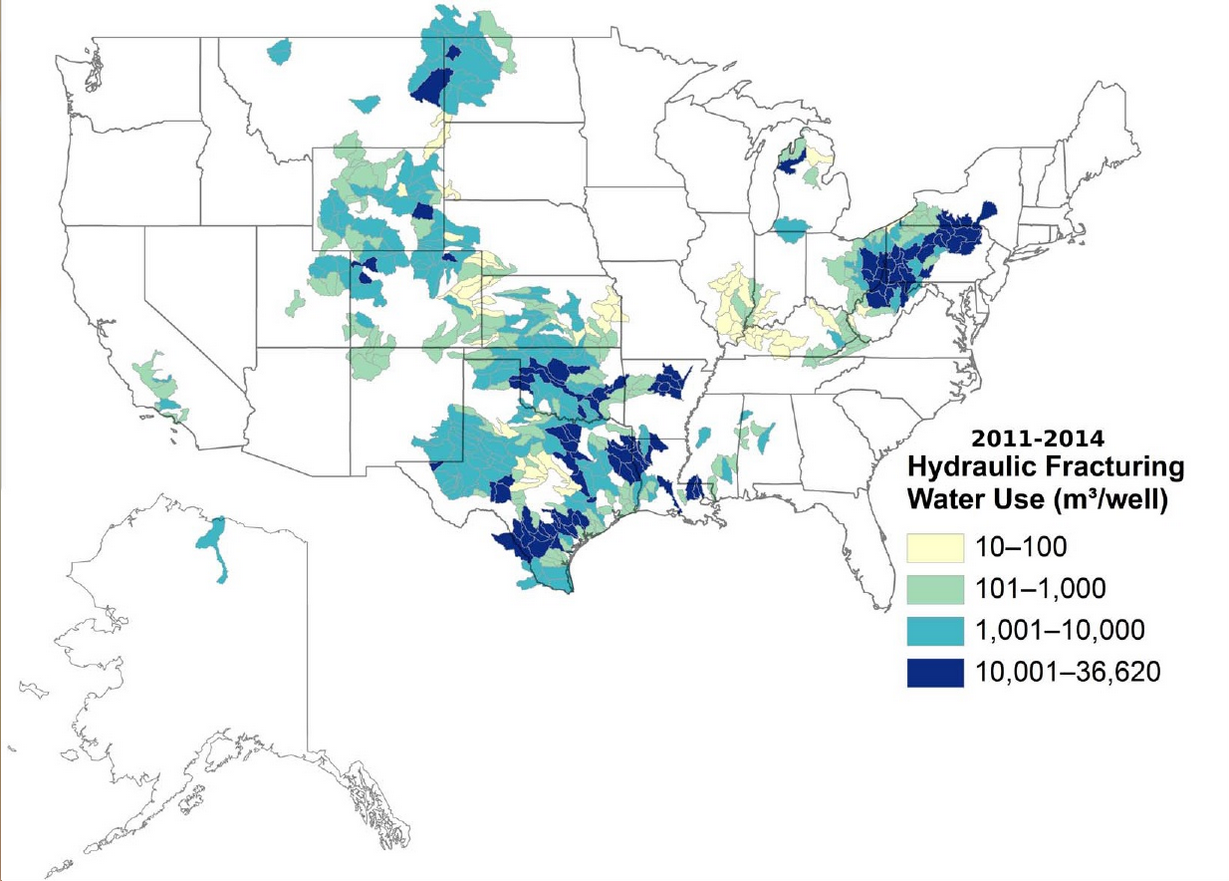Connecting state and local government leaders
Underground water sources tend to sit less than a mile from the earth’s surface, so fracking below them is ideal, according to a new Stanford University study.
Risky oil and gas extraction might be happening near your drinking water, according to a new Stanford University survey.
Termed fracking, the process involves shooting pressurized chemicals into the ground and can contaminate water sources at shallow depths. But that hasn’t stopped states like Texas from outlawing local bans on the practice.
The first-of-its-kind survey, “The Depths of Hydraulic Fracturing and Accompanying Water Use Across the United States,” found one in six wells were fractured less than a mile from the earth’s surface among about 44,000 sites reported between 2010 and 2013 across 27 states. That’s around 7,000 wells nationally.
"You'll hear from industry all the time that fracking only occurs a mile or two underground . . . it's something that they push really hard," Mark Williams, a University of Colorado geography professor, told InsideClimate News.
Six percent of all wells could be found above 3,000 feet, with the majority of shallow sites in Texas, California, Arkansas and Wyoming.
The danger is that the fracking water injected into the earth can contain hydrochloric acids and the wastewater that’s returned those, per the report, as well as dangerous natural chemicals like arsenic, selenium and radioactive radium.
Water use itself can also prove an issue during fracking. The water used to fracture wells can range from 2,600 gallons a site to 9.7 million, according to another first-ever, national study into the process released at the end of June by the U.S. Geological Survey.

Per the Stanford study:
Average water use per well nationally was 2 400 000 gallons (9 200 000 L), led by Arkansas (5 200 000 gallons), Louisiana (5 100 000 gallons), West Virginia (5 000 000 gallons), and Pennsylvania (4 500 000 gallons). Two thousand wells (∼5%) shallower than one mile and 350 wells (∼1%) shallower than 3000 ft were hydraulically fractured with >1 million gallons of water, particularly in Arkansas, New Mexico, Texas, Pennsylvania, and California.
A Penn Medicine study from this month linked fracking well density to a “meteoric” increase in hospitalizations in the Marcellus Shale region, which spans nine states. Other studies of the energy extraction process has been linked to infant deaths and miscarriages rises in Utah fracking boomtowns.
Those news stories were further bolstered by a June study from the University of Pittsburgh tying lower birth weights to mothers’ proximity to gas wells.
"After years of exhaustive research and examination of the science and facts, prohibiting high-volume hydraulic fracturing is the only reasonable alternative," Joe Martens, New York Department of Environmental Conservation commissioner, said in a statement when the state’s ban took effect. "High-volume hydraulic fracturing poses significant adverse impacts to land, air, water, natural resources and potential significant public health impacts that cannot be adequately mitigated.”
Fracking has been found to have had impacts on education. The energy extraction industry has fueled a demand for low-skilled, local labor that nationally “has increased high school dropout rates of male teens, both overall and relative to females,” according to a July working paper from the National Bureau of Economic Research. “Our estimates imply that, absent fracking, the male-female gap in high school dropout rates among 17- to 18-year-olds would have narrowed by about 11% between 2000 and 2013 instead of remaining unchanged.”
Vermont has banned fracking since 2012, while Maryland has a moratorium until 2017—similar to what New York issued in 2008 before releasing a final environmental impact statement after a seven-year review.
The Stanford survey provided suggestions on how to proceed with fracking in states without bans:
Because hydraulic fractures can propagate 2000 ft upward, shallow wells may warrant special safeguards, including a mandatory registry of locations, full chemical disclosure, and, where horizontal drilling is used, predrilling water testing to a radius 1000 ft beyond the greatest lateral extent.
"The public pays to clean up acid mine drainage today because of poor practices decades ago," the study’s author Robert Jackson says. "What are we doing today that may cause problems tomorrow?"
(Photo by A. Katz / Shutterstock.com)
Dave Nyczepir is News Editor for Government Executive’s Route Fifty.

NEXT STORY: Colorado Ski Town Votes to Ban Pot Shops to Appease Conservative Guests




